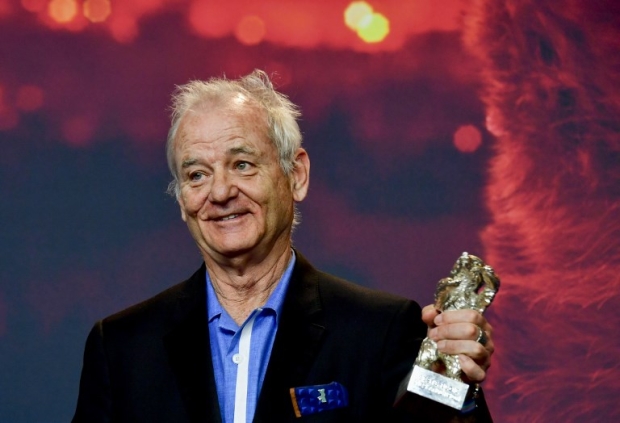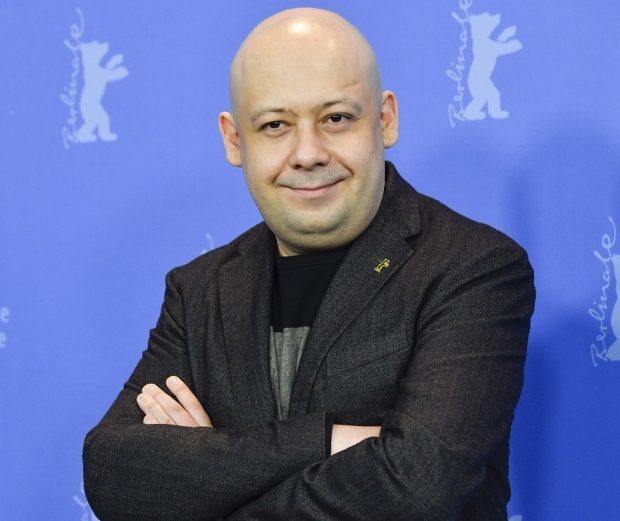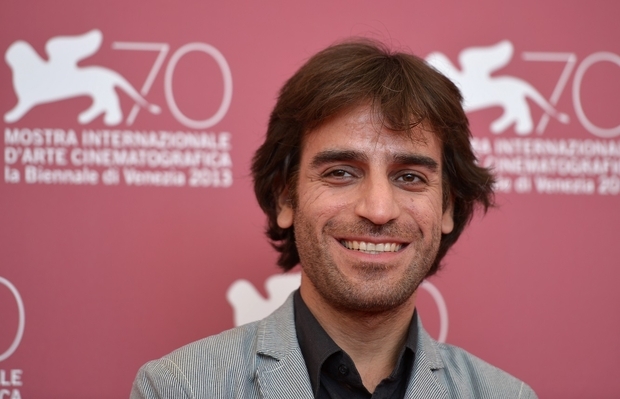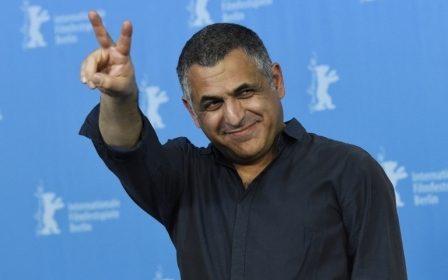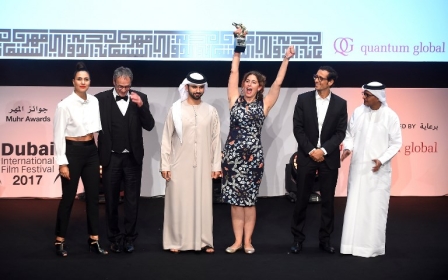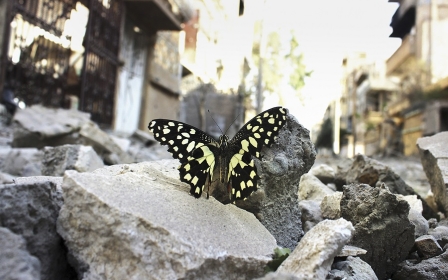Refugees and Trump’s America rule 2018 Berlin Film Festival
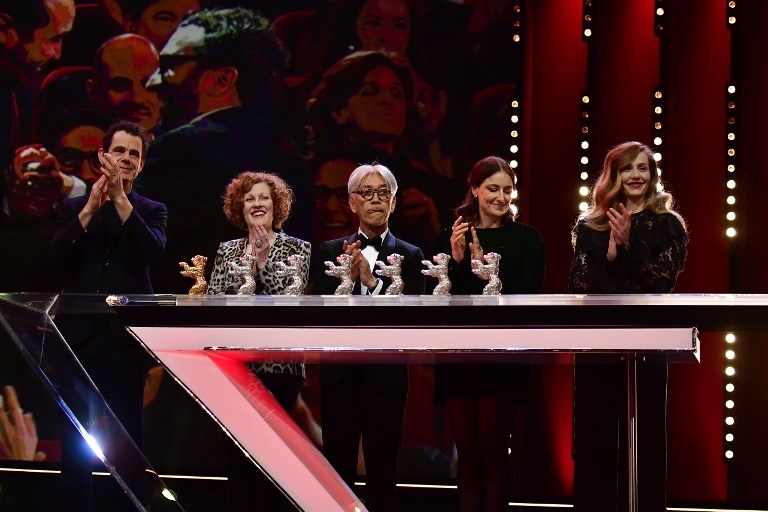
BERLIN - The 68th Berlin Film Festival (the Berlinale) was expected to sidestep politics and focus almost solely on art and entertainment. Yet by the second day of the festival, it was already clear that this was merely wishful thinking.
Considered to be one of the world’s biggest film events, it did not break with tradition in 2018, offering the same hefty plate of every imaginable political and social problem in existence.
The top two awards at Berlinale both went to female filmmakers. The Golden Bear for Touch Me Not by Romanian director Adina Pintille and the runner-up grand jury prize for Mug, by Polish director Małgorzata Szumowska.
The first film got mostly negatives reviews, while the second film is decent but unspectacular compared to Wes Anderson's opening film, Isle of Dogs.
What distinguished the few standout pictures of a line-up regarded by most critics as exceedingly underwhelming is both their sense of urgency, as well as their formal brilliance.
Politics of the day
Few, if any, would have expected Wes Anderson’s Isle of Dogs, which won a Silver Bear for best director at Berlinale, to deliver any political statement of sorts. But it did, in an astonishingly subtle, smart and entertaining fashion.
A Trumptian allegory tackling rising anti-immigrant sentiment, populist politics, and covert fascism, Anderson’s cult hit in the making may be deemed the latest example of the Woke movement, a Hollywood movement by popular American artists creating politically engaging films.
In fact, as many Berlinale films from different parts of the globe indicated, it might be almost impossible at this moment in history to completely detach art from the politics of the day.
Cut from Middle East cloth
Themes pertaining to the Middle East were found in abundance in an expansive selection begging for substantial trimming. However, the best films tackling the reality of the region were not, as a matter of fact, set there at all.
This year’s Berlinale was, as in recent years, chockful with customary refugees stories, from veteran Swiss filmmaker Markus Imhoo’s sincere, but uneven Eldorado, to Germinal Roaux’s sobering Fortuna.
The most powerful titles of the lot also happened to be the most unconventional in structure and treatment of the subject. Acclaimed German filmmaker Christian Petzold’s Transit transports Anna Seghers’ 1942 novel about a concentration camp survivor seeking an escape to North America, away from Nazi persecution to present-day Marseille without providing any background or explanation for what’s happening. The audience is left befuddled for the first 30 minutes.
By stripping away the historical context of the story, Petzold has created a daring, radical, melodramatic thriller that taps into the fundamental pains of displacement and exile, detailing the agony and absurdity of residency permits, borders, and the state of limbo most refugees are thrust into. By placing white protagonists at the heart of a crisis inflicted mostly on people of colour, Petzold forces his white audience to fully experience the refugee predicament in a fashion unseen and unheralded before.
Another unusual refugee thriller that attracted a lot of buzz was Wolfgang Fischer’s Styx, a minimalistic, bare-bones parable centring on a white female paramedic who, while making her annual solitary retreat in the middle of the Atlantic Ocean, stumbles upon a migrant boat severely damaged by a storm.
Her pleading calls to invisible coastguards go unanswered, and when they finally respond, they urge her to steer clear of the ship. “You think you can be their saviour,” one guard calmly tells her. “But you aren’t. You can’t.” A stern attack on Europe’s apathy towards a calamity rooted in colonialism, Fischer’s breakout festival hit is a visceral, disquieting experiment that speaks volumes about white guilt and premeditated institutional negligence by showing very little.
Equally ambitious, if less effective, was Berlin-based Brazilian-Algerian filmmaker Karim Ainouz’s documentary Central Airport THF, an in-depth look at how the abandoned Berlin Tempelhof Airport has been turned into a giant transit station for refugees.
Ainouz focuses on the plight of a young Syrian man prepping for his new German life and an Iraqi doctor trapped in this eternal purgatory. Ainouz’s sympathy with his characters is palpable, but what fascinates the most is the mechanism of the place, the quotidian routines of these unordinary lives, and the relationship of the refugees with their anonymous German supervisors. The film suffers from a tangible point of view, as the monologues of the Syrian are rather familiar and redundant.
Iran's big splash
Despite a limited presence, Iran made a big splash at this year’s edition. Mani Haghighi once again confounded expectations with his offbeat competition entry, Pig; a left-of-field serial killer comedy about a narcissistic, heavy-metal- loving, black-listed filmmaker who battles mid-career crisis as he grows frustrated by the ostensible lack of interest from a serial killer targeting the nation’s top filmmakers.
A satirical look at celebrity culture and the toxicity of social media rather than a political commentary on art creation in Iran, Pig is hampered by shallow characterisations and a weak resolution, but Haghighi’s biting and truly funny comedy overshadows these misgivings.
The premise, on paper, may sound simple, but the execution is anything but. Plotting is constantly sidestepped, as the present is fused with the past. Combining disparate aesthetics and influences, from theatre and American horror, to the sweeping cinematography of Russian maverick Alexander Sokurov, Invasion is both frustrating and compelling, yet mysterious and pointed. It is pure bravura filmmaking that marks another stepping stone for one of Iran’s most inventive filmmakers.
Arab films
The Arab films did not fare as well in a very disappointing lineup that was light on remarkable works. The best of the bunch was Jumana Manna’s sophomore effort, Wild Relatives, a documentary that draws parallels between perishing Levant seeds and the destructive impact of the Syrian war. Manna’s approach is more meditative than anecdotal, relying on metaphors and subtext to deliver a powerful message on a dying way of life.
Less successful was Hicham Lasri’s Jahilya, the prolific Moroccan filmmaker’s sixth film in eight years. A tapestry of interlinked stories of six characters populating Morocco’s coarse urban landscape, Lasri covers his recurrent topics of class division, carnivorous patriarchy, and social injustice.
Jahilya is a quieter, more composed picture than Lasri’s previous outings. The atmosphere is more subdued and mournful, but the themes grow increasingly tiresome. The ideas are exasperatingly obvious and the entire affair feels undercooked, while the characters come off as identical replicas culled from his past films.
Completely devoid of virtues was Narjiss Nejjar’s latest feature, Stateless, a precocious, bloated flick about a young Moroccan-born Algerian forced to leave her Algerian home for an unwelcoming Morocco.
What starts off as a poetic take on statelessness and identity, quickly descends into yet another insufferably pretentious story of female subjection, the kind North African cinema has been intently churning for the past 30 years. Contrived, excessively melodramatic, and endlessly cliched, the atmospheric imagery of Stateless eventually feels hollow – a pale imitator of a latter-day Terrance Malick, the legendary US director, without the postmodernism.
Lingering ills
The most accurate embodiment of the lingering ills of Arab cinema was Reem Saleh’s documentary What Comes Around. The Lebanese-Egyptian’s first film is a portrait of the destitute Cairo neighbourhood of Rod El Farrag – the birthplace of her mother – shot over five years.
It takes the concept of al-Gami’ya – money saved and collected by different members of the community – as a starting point for delving into the lives of the district’s inhabitants.
On paper, What Comes Around aspires to be an uplifting chronicle of social solidarity in a time of severe depression. What transpires instead though is a feast of grotesqueness, an ugly, exotic sketch of a place shot by an outsider with an off-putting fixation on the outlandish and the unpleasant.
Saleh spends the larger duration of her shoddily-edited film gazing upon slaughtered rabbits, the appallingly garish outfits of her characters, and the bizarre customs, as the haphazardly constructed, drama-free narrative ambles along.
The audience this writer attended the screening with were laughing at the characters, not with them. Time and time again, it’s been proven that good intentions do not necessarily translate into good movies. What Comes Around, like many of the Middle Eastern movies shown this year in Berlin, is a prime case in point.
New MEE newsletter: Jerusalem Dispatch
Sign up to get the latest insights and analysis on Israel-Palestine, alongside Turkey Unpacked and other MEE newsletters
Middle East Eye delivers independent and unrivalled coverage and analysis of the Middle East, North Africa and beyond. To learn more about republishing this content and the associated fees, please fill out this form. More about MEE can be found here.


